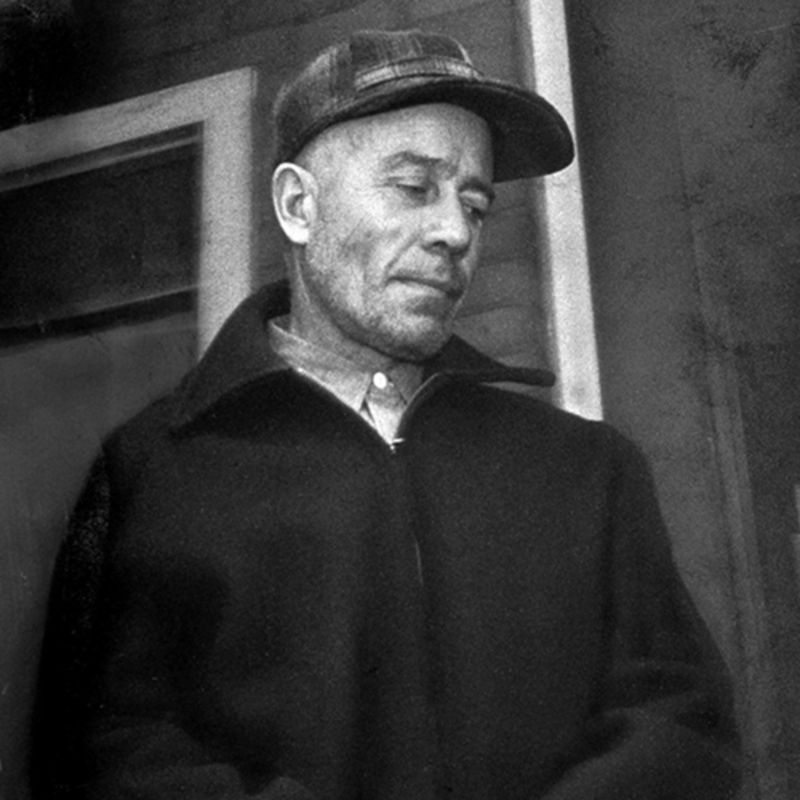Henry George Gein was born on January 8, 1901, in La Crosse, Wisconsin. He was the older of two sons born to George Philip Gein, a man struggling with alcoholism, and Augusta Wilhelmine Gein, who held fervent religious beliefs.
Growing up in a household dominated by their mother’s strict and puritanical teachings, both Henry and his younger brother, Ed, were subjected to a unique upbringing. Augusta frequently imposed her views on the boys, instilling a fear of immorality and emphasizing the dangers of lust and carnal desire.
The family’s relocation to a farm outside Plainfield, Wisconsin, around 1915 marked a significant shift in their lives. The boys were largely confined to their home, allowed to attend school but required to return immediately afterward. This isolation would have lasting effects on their personalities and choices in life.
Family Dynamics and Influence of Augusta Gein
The Family dynamics were heavily influenced by Augusta Gein’s strict parenting style. Her devoutly religious nature and disdain for what she deemed as immoral behavior led to a controlling household environment. She often used biblical teachings to instill fear and compliance in her sons.
The relationship between Henry and Ed was marked by shared struggles in their isolated upbringing. They often relied on each other for companionship in a world that provided little outside engagement. However, the differing levels of attachment to their mother created a complex dynamic between the two siblings.
While Ed seemed more eager to please Augusta, Henry George Gein’s character was more reserved. Over time, this divergence in behavior caused friction in their relationship, especially as Henry began to question their mother’s authority. The tension between the brothers would eventually reach a critical point following a tragic incident.
Source: https://www.imdb.com/
Life in Plainfield, Wisconsin
Henry George Gein resided in Plainfield, a small town that offered a sense of tranquillity prior to the infamous actions of his younger brother. In their secluded setting, the Gein family home became a fortress against the world, heavily influenced by their mother’s fervent beliefs.
Living in Plainfield allowed Henry to experience a straightforward life characterized by simplicity. Working as a farmer, he embraced the labor of cultivating the land alongside Ed. Farming reflected the resilience often associated with rural life, providing a sense of purpose and fulfillment despite the harsh conditions.
Occupation and Daily Life
Henry George Gein’s daily routine revolved around hard work and responsibility in managing their family’s farm. His efforts within the agricultural domain helped sustain the household, showcasing a commitment to duty that resonated with the agricultural lifestyle of that era.
Life on the farm was devoid of the distractions of modern society. The brothers often worked collaboratively, relying on each other to navigate the physical demands of farm work. Yet, this simplicity contrasted sharply with the psychological complexities arising from their upbringing and living conditions.
The Tragic Death of Henry George Gein
On May 16, 1944, a catastrophic event occurred that would shatter Henry’s peaceful existence. A grass and brush fire broke out on the Gein farm, a common hazard in rural communities. Both brothers were present during the fire, yet only Ed would walk away unscathed.
When the fire was finally controlled, Henry was found deceased. The official cause of death was asphyxiation due to smoke inhalation. However, speculation around the circumstances surrounding death sparked intrigue, especially regarding Ed’s behavior in the aftermath.
Henry’s unexpected demise marked the end of a life steeped in complexity. His existence had been molded by the influence of Augusta and shaped by a challenging occupation as a farmer.
Impact of Henry’s Death on Ed Gein
Henry George Gein’s sudden death in 1944 had profound repercussions on Ed Gein, leading to significant changes in his mental state and behavior. Left alone with their controlling mother, Ed’s already strong attachment to Augusta intensified.
The loss of Henry, a steady presence in life, appeared to amplify Ed’s eccentricities. Some community members noticed Ed’s odd behavior following the tragedy, including uncharacteristic failure to report his brother missing, raising suspicion.
The combination of losing both his brother and mother within a short timeframe set the stage for Ed’s eventual descent into criminality, as his behavior spiraled out of control.
Burial and Legacy
After Henry George Gein’s untimely passing, he was interred at Plainfield Cemetery, surrounded by the quiet that had once characterized life. His grave serves as a stark reminder of a man forever overshadowed by the gruesome legacy of his brother.
Although often overlooked, Henry’s life provides essential insights into the psychological development of Ed Gein. Despite his obscurity, the dynamics among the Gein family, particularly the impact of Augusta’s influence, remain significant in understanding the tragic narrative that unfolded in Plainfield, Wisconsin.

Welcome to the world of Chef Gary! Meet Chef Gary, a culinary maestro whose journey from Indonesia to the United States has been nothing short of extraordinary. Immigrating in the early 2000s, Chef Gary began his culinary career as a Sushi Chef at renowned establishments such as Japonais Restaurant in Chicago, followed by stints at Benihana and Ginza in Indiana.
With a passion for perfection and a dedication to his craft, Chef Gary’s career blossomed as he made his mark in the Sunshine State, serving as the Head Sushi Chef at Modern Asian restaurants in Palm Beach. However, his two-year sojourn in New Delhi, India, shaped his culinary prowess, propelling him to the prestigious role of Executive Chef at Nehru Place – Benihana.

